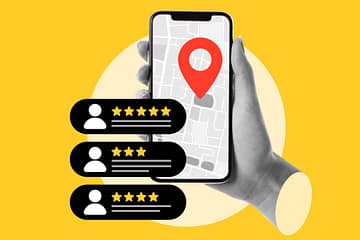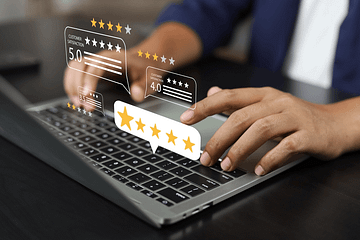The expression ‘business point‘ could sound very simple, yet it represents a complicated concept that implies understanding different industries, platforms, and strategic frameworks. Understanding the different dimensions of ‘business point’ could help to provide an insight into corporate services as well as academic theories. There would possibly be great value for actor or practitioner in that understanding, whatever their interests or affiliations.
1. Defining “Business Point”
According to the closet definition, “Business Point” is a single point or node within larger business systems; this includes:
- Platforms and Services: Their online or offline hubs where business activities are accumulating.
- Strategic Concepts: Theoretical models or principles that facilitated decision-making.
- Physical Locations: Defined physical spaces allocated to the performance of business activities, such as retail outlets or corporate offices.
2. Business Point as Platforms and Services
2.1 Corporate Solutions
Various companies include “Business Point” in their services in order to meet distinct needs:
- Chevron Business Point: It is a service from Chevron to users for all oil operational services such as fuel distribution as well as logistics management.
- Fiserv Merchant Services – Business Point: An expanded merchant portal with analytics, real-time monitoring of transactions, and downloadable reports for business owners.
2.2 Consulting and Advisory
Business Point Consultants: Offer advisory services customized to strategic objectives of businesses, which might range from the entrance into new markets to efficiencies in operations.
3. Business Point in Data and Analytics
3.1 Data Platforms
- US Business Points by Precisely: This service provides complete datasets of business locations to inform analysis of the markets and strategic decision-making. These data can be incorporated in analytics platforms to optimize the operations of an organization or identify opportunities for growth.
- US Commercial Points: Service provides business location datasets that can be utilized for market analysis and strategic decision-making. These data sets can be integrated with analytics platforms to enhance organizational operations and identify potential for growth.
3.2 Importance of Data
Availing real and precise data is vital for a business, to:
- Understand membership demographics of the market.
- Find the competition.
- Create focused and effective marketing strategies.
4. Business Point in Academic and Professional Development
4.1 Educational Institutions
Point University’s Business Programs are designed with the aim of enabling students to take up roles such as administrative assistants, office managers, or customer service representatives that are to provide practical and fundamental training.
These programs have, therefore, been put in place by the University specifically to prepare students for careers such as administrative assistant, office manager, or customer service representative.
4.2 Research and Theoretical Models
The Terminology or Concept is a fictitious concept under which the state of revenue generation exceeds costs, thus changing the direction from a loss to a profit situation.
5. Business Point in Strategic Planning
5.1 Decision-Making Frameworks
- They help in monitoring progress towards objectives.
- Assist in effectively allocating resources.
- Modifying plans according to the changes in the market.
5.2 Examples of Strategic Applications
- Bottom of the Pyramid (Bops) Segment: Targeting low-income consumer segments to create affordable and accessible products so that the market can be expanded.
- Customer Touch Points: Identify critical customer interactions to enhance their satisfaction and loyalty.
6. The Role of Business Point in Technology
6.1 Digital Transformation
- A point for conducting business in the current era is through digital technology.
- Simplification of processes through storage of data and remote access: Cloud-Based Solutions.
- AI-Powered Analytics: Acquiring many consumptions and market changes concerning operational efficiency.
6.2 Emerging Trends
- Transforming industries through predictive analytics and automation is what Artificial Intelligence (AI) does.
- Ans: It provides Transparency in addition to security in the transactions.
7. Business Point in Government and Policy
7.1 Electronic Business Points of Contact (E-Biz POC)
Indeed, E-Biz POCs at work. The federal system grants these federal grants to organizations. For example, through his E-Biz POC, here’s what he will do under the grant: apply for grants; make sure that conditions from federal sources are duly met; and communicate to the funding agency.
7.2 Policy Implications
Governments on Business Points can:
- Facilitate the public-private partnership.
- Promote small and medium enterprises (SMEs).
- Spur economic development.
8. Challenges and Opportunities
8.1 Challenges
- Data Security: Keep confidential data safe in the electronic Business Points.
- Market Saturated: Differentiate services among some highly competitive markets.
8.2 Opportunities
- Via Cross Border: Attaining those that grow to be those hubs within the global framework of all worldwide business development.
- Green Initiatives: Create a green agenda strategy to include eco compatibility within business operations.
9. Conclusion
Thus, it is ‘Business Point‘ not a term, but a living dynamic concept that must now meet the requirements of modern commerce and strategy. From the digital platform, that also lends itself to theoretical framework, Business Point defines an innovation, an efficiency, and thus a growth intersection. Understanding all its features and functionalities will empower businesses to navigate challenges, gain better routes to opportunity, and achieve sustainable success.



0 Comments